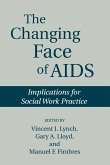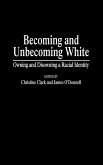This book presents evidence that childhood prejudice is not only different from the adult kind, but also changes in a pattern inverse to that of moral judgement. Changing Childhood Prejudice describes longitudinal and cross-sectional studies of city and suburban children in grade, middle, and high school. Davidson used interviews to supplement observations made during playing her board game, then compared scores on the prejudice that emerged with scores on Kohlberg's Measure of Moral Development. Considering childhood prejudice as a detour in the possible strong development of caring, character and moral judgement implies a school context smaller, warmer, and more encompassing than one relying only on mainstreaming and multiculturalism. The fact that nearly 40% of the nation's public school children will be from minority backgrounds within a few years requires new goals, including influencing parents. The authors call for school-by-school mission statements drawing parents into cooperative development of anti-prejudice and character curricula, supplementing the leadership of faculty members and some adolescents. New roles for the mental health community are also described. Examining the research of others and their own case studies from cognitive, clinical, and social perspectives, the Davidsons conclude that ways of opposing prejudice and insisting on caring can be adapted to children's changing moral assumptions at each level of schooling. Children's might-makes-right and favor-trading assumptions in grade school change through identification with a conforming goodness. Conformity can be gradually replaced by independence in ideals, particularly when secondary students ponder their own community service. Coauthored by a clinician and a professional writer, the book tells how to achieve more caring in public schools and more cooperative discipline at home.
Hinweis: Dieser Artikel kann nur an eine deutsche Lieferadresse ausgeliefert werden.
Hinweis: Dieser Artikel kann nur an eine deutsche Lieferadresse ausgeliefert werden.








